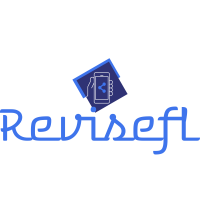The healthcare industry has significantly evolved, with technology pivotal in this transformation. One of the prominent innovations is the development of medical apps and tools like pharmacy inventory management software, which have revolutionized the way healthcare services are delivered. However, developing a medical app comes with unique challenges and peculiarities. Let’s delve into these intricacies.
Compliance with Regulations
One of the most critical aspects of medical app development is ensuring compliance with healthcare regulations. These rules mandate strict data privacy and security standards, making it imperative for developers to incorporate robust security measures in their apps.
Integration with Existing Systems
Medical apps must often integrate with existing systems such as Electronic Health Records, billing software, or pharmacy databases. Seamless integration ensures streamlined data sharing and improves the overall efficiency of healthcare delivery.
User-Friendly Interface
Given the diverse user base of medical apps, including healthcare professionals, patients, and administrative staff, the user interface should be intuitive and straightforward. Medical app developers should allow users to navigate the application easily and perform tasks efficiently.
Telemedicine Features

With the rise of telemedicine, features like video consultations, chat support, and remote monitoring have become essential in medical apps. These features allow healthcare providers to deliver services remotely, making healthcare more accessible.
Data Security
Data security is paramount in healthcare due to the sensitive nature of medical information. Medical apps should employ advanced security measures like data encryption, secure user authentication, and regular security audits.
Interoperability
Interoperability refers to the capacity of different systems, devices, and apps to access, exchange, and cooperatively use data in a coordinated manner. In the context of medical apps, the app should be able to communicate effectively with other systems and devices in the healthcare ecosystem.
Real-Time Updates
The dynamic nature of healthcare necessitates real-time updates in medical apps. Whether it’s updating patient records, notifying medication schedules, or alerting about health parameter thresholds, real-time functionality is vital.
Conclusion
In conclusion, medical app development is a multi-faceted and intricate process that demands a profound comprehension of technology and healthcare regulations. Developers must adeptly navigate through myriad challenges, such as ensuring regulatory compliance, implementing robust data security measures, seamlessly integrating systems, designing intuitive user interfaces, and providing real-time updates.
By successfully addressing these challenges, medical apps can revolutionize healthcare delivery, improving patient outcomes, enhancing accessibility to medical services, and facilitating more efficient contact between healthcare providers and patients. The transformative impact of medical apps on the healthcare industry makes pursuing medical app development a highly worthwhile and rewarding endeavor.
